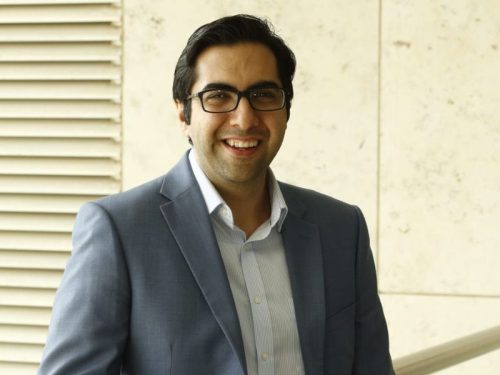Interview: Siddharth Shahani, co-founder, Atlas SkillTech University
Mumbai-based ATLAS SkillTech University (estb. August 2021) lays claims to having strong foundations – the Indian School of Design Innovation (ISDI) and Indian School of Management and Entrepreneurship (ISME) (estb.2012) have run successful diploma programmes for over 10 years in Mumbai. Backed by a stellar advisory board led by Deepak Parekh, chairman, HDFC and chancellor and president, Dr. Indu Shahani who brings over 30 years of experience as an educational leader, ATLAS SkillTech university aims to bridge the chasm for high-value skills through its highly innovative, cutting-edge technology and skills curriculum. In conversation with EducationWorld’s Dipta Joshi, the university’s co-founder and executive president, Siddharth Shahani talks about ATLAS SkillTech’s partnerships and the new trends amongst its 2400 learners.
What is ATLAS SkillTech University offering students?
ATLAS SkillTech University is modeled on the likes of Cornell Tech campus (a part of Cornell university, New York), and other progressive universities that combine multidisciplinary education, technology, delivery with other in-need, in-demand skills programmes. It’s a full-service undergraduate university with a focus on technology and skills that we believe are the future need of the country.
Our students come from leading schools across the country to study cutting-edge new age programmes that require 21st century skills. We offer a highly industry integrated model that thrives in Mumbai because industry and academia learning can happen in an unrivaled manner. Encouraging multidisciplinary education, our classrooms can extend into the offices and labs and vice versa.
What programmes are you offering?
We offer full-fledged degree programmes with a focus on three verticals: design and innovation, entrepreneurship and business and digital technology. We have a four-year undergraduate bachelor of design, a three-year undergraduate BBA and a four-year BSc in artificial intelligence and machine learning.
Have you partnered with any overseas institutions?
Yes we have multiple academic partnerships. We have curricular collaborations with the #1 global design school, Parsons School of Design, NewYork and the #1 film and media school, the Vancouver Film School, Canada for digital content.
On the professional side, we have multiple levels of collaboration. Our students are interning with companies like WNS Global Services for data sciences, Mahindra Group companies and software major, Tata Consulting Services. We also collaborate around internships and observer ships. Another level of collaboration is around solving some of the industry’s most pressing needs on campus. The idea is to provide a real-world learning experience by problem-solving alongside industry peers.
The programme certifications mention details of our curricular collaborations. These work as an identifier for our students, especially in the job market where having studied globally competitive curriculum makes a difference.
Is there an agreement for faculty exchange too with these institutions?
We do have faculty from our partner institutions coming in for burst mode teaching but we want to build a sustainable ecosystem that leads to a high-quality faculty pool and thus many of our own faculty are mentored and trained by top-class faculty from these universities. After the training, our faculty also engages in joint projects and case studies with them. This approach has helped us build and nurture our own faculty while promoting academic delivery within the Indian context. We also have the advantage of being in a city like Mumbai whereby we have easy access to industry leaders as visiting faculty.
Tell us about your course structure that focuses on internships.
During the first year, the student just does an observership in the industry through a two-week immersion programme. After two years of education, the students get into apprenticeship with the industry experts coaching and mentoring them. After three years, the students are ready to do a full-fledged, formal internship where they contribute to the team and possibly even lead the project. Most of our students get absorbed in their placements at the end of the fourth year.
A new trend that is shaping up is that youngsters today are interested in seeking real world experiences even before they secure their final job. They are either setting up start-ups, freelancing in their chosen field, volunteering for a good cause or associating with a government project for six months or a year before they get into a full-time job. About 80 percent of our students opt for vanilla employment and the rest get into entrepreneurship, working on social projects or work on their own initiatives.
Any pointers to what students should pay attention to while seeking admissions to institutions?
Students respond differently and have varied educational experiences. Thus, while looking up the track record of an institution is important, students must always visit the institution. One must avoid deciding on the basis of the institution’s online offerings since the online marketplace has all institutions looking the same.
The student must also see if he identifies with the ethos and vision of the overall institution because while the courses offered will be the same and the faculty will be similar, it’s really the ethos of these institutions that matter. One must also talk to peers because they are the products of the institutions. Students can understand from other students whether the institution is suited for them or not.
What about ATLAS SkillTech’s future excites you?
The UGC is opening up many opportunities for higher education and I am excited about actualising the national education policy. Currently, we have 16 undergraduate and postgraduate courses and we want to ramp them up to 25 over the next few years. The course themes will be around existing and upcoming technologies like digital content creation, the internet of things (IoT), service design, fashion technology, augmented reality, and virtual reality. We want to introduce courses on the metaverse which is a whole new realm. We are also looking at catering to 5000 students in the next five years.
















Add comment